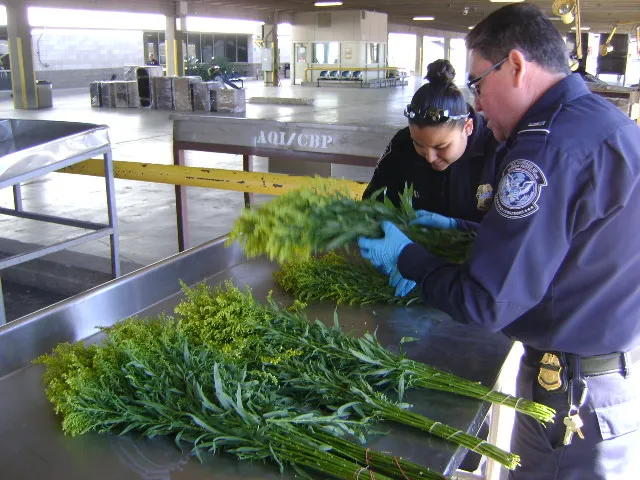EL PASO, Texas – In the days leading to Valentine’s Day, U.S. Customs and Border Protection’s highly trained agriculture specialists ensure that plant diseases and plant pests are detected and stopped from being introduced into the United States where they could cause harm.
At international ports of entry, land borders and mail facilities, CBP agriculture specialists are the front line in the fight against the introduction of harmful insects and diseases into the United States.

“CBP agriculture specialists prevent potentially harmful plant pests and foreign animal diseases from entering the U.S. every day,” said CBP El Paso Director of Field Operations Hector Mancha. “The work they do is important.”
At El Paso area ports of entry, the most commonly prohibited flowers and plant materials are chrysanthemums, gladiolas, and choisya (an ornamental filler). These items are not allowed to enter the U.S. from Mexico because they are known to harbor harmful pests and disease.
Individuals purchasing floral arrangements in Mexico for transport to the U.S. should advise their florist so prohibited plant species will not be used in the arrangement. Port of El Paso CBP agriculture specialists performing agriculture exams recorded a total of 46,107 quarantine material interceptions and 2,300 pest interceptions during fiscal year 2016.
Additional photos of cut flower inspections are available on the CBP Flickr website.

